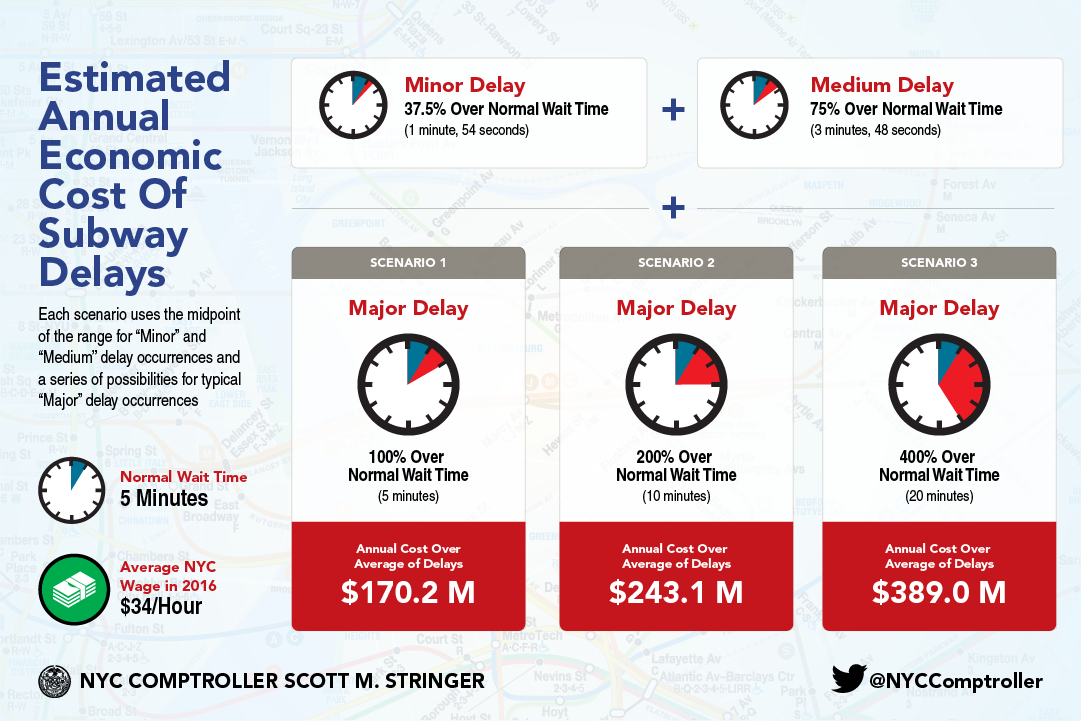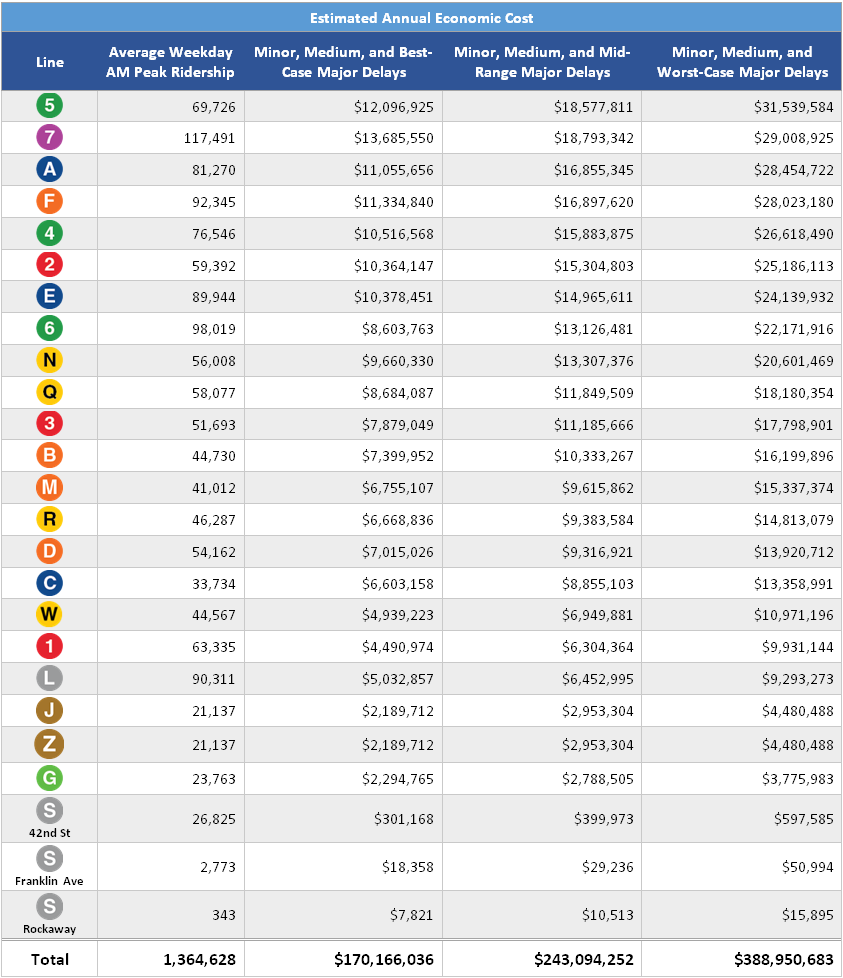The Economic Cost of Subway Delays

A new analysis by New York City Comptroller Scott M. Stringer finds that the economic cost of subway delays could be as high as $389 million annually.
Subway delays impose real human costs, as the Comptroller’s recent survey of straphangers documents. Delays also impose economic costs, in terms of lost productivity for businesses and lost wages for workers. Approximately 1.365 million riders take the subway each workday morning, and every delay means time lost in arriving at work.
The analysis is based on data from the MTA on train schedules, passenger volumes, and wait assessments by subway line. The MTA provides delay metrics in its Monthly Committee meetings, based on weekday, 6 a.m. to midnight experience.[1] “Minor” delays are those that cause trains to be delayed by 25% to 50% over their scheduled time – so-called “headway gaps”. “Medium” delays are headway gaps of 50% to 100% over scheduled time, and “major” delays are those over 100% over schedule time. For example, a subway line with a headway of 6 minutes – i.e., a train is scheduled to arrive at a station every 6 minutes – would experience a minor delay if the actual gap between trains was between 7.5 and 9 minutes, a medium delay if the gap was between 9 and 12 minutes, and a major delay if it arrived more than 12 minutes after the prior train.
Assuming an average hourly New York City wage of $34,[2] the estimated cost of delays varies with the extent of major delays. Using the midpoint of the range of Wait Assessment delays for minor and medium delays (37.5% and 75% behind schedule, respectively, or 2 and 4 minutes on average, systemwide), and a major delay equal to 100% behind schedule, or 5 minutes systemwide, yields a low-end estimate of $170 million per year.
Given the recent frequency of extended delays and the greater overcrowding during rush hour, which extends delays, major delays might involve waits of 10 or even 20 minutes, which raises the cost to as much as $389 million of lost productivity annually (see table).
The Economic Cost of Subway Delays, by Line

The Comptroller wishes to thank Lawrence Mielnicki, Chief Economist; Preston Niblack, Deputy Comptroller for Budget; and Adam Forman, Associate Policy Director, for their work on this report, along with Tyrone Stevens, Press Secretary; Jack Sterne, Press Officer; and Angela Chen Senior Web Developer and Graphic Designer for their contributions.
[1] http://web.mta.info/mta/news/books/index.html. Rush-hour delays may be greater than the full-day data reported in the monthly committee statistics, due in particular to overcrowding, which is the source of nearly half of all train delays (NYCT and Bus Committee Materials, 2017, through May).
[2] Bureau of Labor Statistics, Census of Employment Statistics, NYC average hourly wage for 2016.